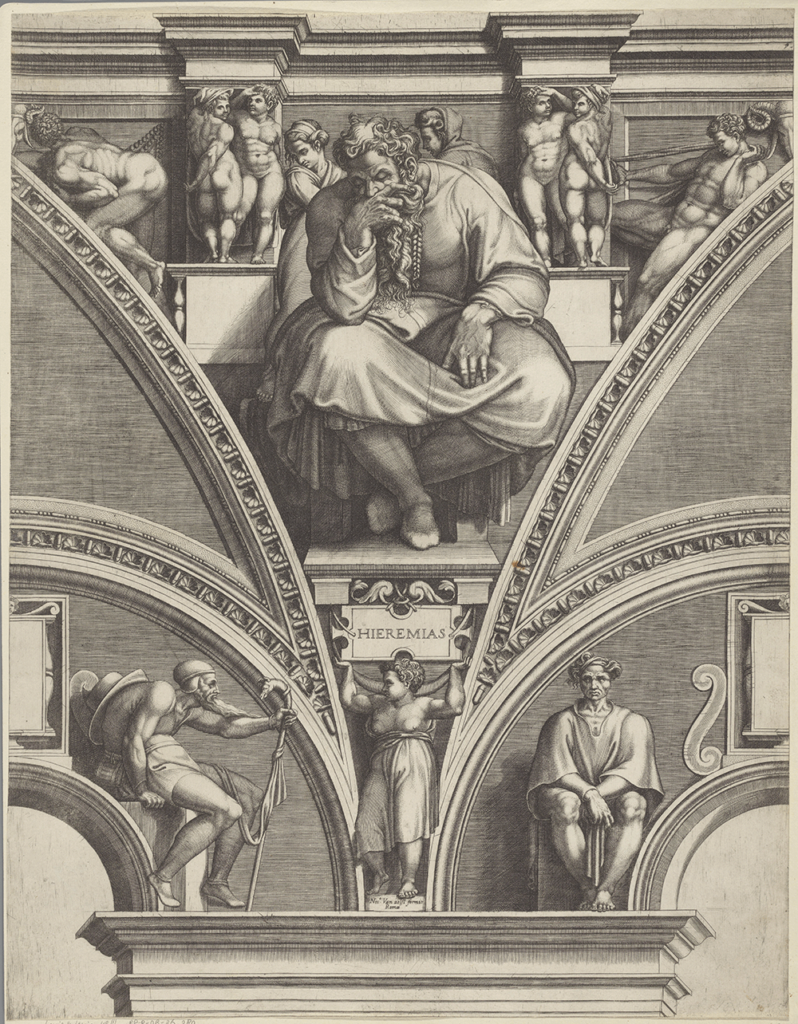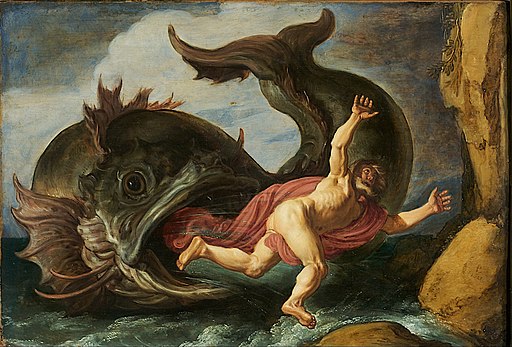Sometimes people ask me what I think is the hardest part of priesthood. In this season of my ministry, the answer is easy: the hardest thing for me as a priest is to know the path forward and watch people ignore it, avoid it, or otherwise refuse to walk in the way God invites them. I imagine parents have a similar heartache – how painful it must be to watch their children make decisions they know will only come to regret later on! And therein lies the rub of genuine love – it honors free will even when that will is oriented towards something harmful or dangerous.
In moments like this, I am reminded of one of my favorite Old Testament figures: the prophet Jeremiah. His role in the history of God’s people is unenviable – to say the least! He was called to proclaim that Jerusalem would be destroyed, the nation of Judah would suffer greatly, and eventually, that they would all be made captives in a land not their own. All of this was due to Israel’s great sin in forsaking God and worshipping Baal, even to the point of sacrificing their own children.
As you might imagine, Jeremiah was not exactly the life of the party nor welcomed pretty much anywhere. Not only was he tasked with the responsibility of proclaiming his own people’s downfall and calling them to repentance, but they in turn shunned him, even to the point of exiling him or outright plotting to kill him on more than one occasion. Jeremiah never gave up on his people, even when it meant sharing in the sorrows of their punishment, continuing to try to turn them back to the Lord.
The other prophet with whom I relate well is Jonah. He’s a little more well-known, particularly for his time in the whale after he tried to escape God and His instruction to go to Nineveh to call them to repentance. The people of Nineveh – unlike those to whom Jeremiah preached – responded. Not only that, they responded quickly and wholeheartedly. Jonah was only one day into the city when the entire city, from king to commoner, covered themselves in sackcloth and beseeched the Lord for mercy – which He granted them.
What people often overlook in this story is what comes next: the uncovering of Jonah’s heart. Rather than rejoicing with Nineveh at their conversion and God’s graciousness towards them, he is ticked; he didn’t want the Ninevites to be forgiven! He goes out of the city to sulk. Only after a rather miraculous – and convicting – interaction between him and the Lord does the lesson of God’s love begin to sink in.
The tension between the vindictiveness of Jonah and the faithfulness of Jeremiah is stark. To be sure, Jonah grew in fidelity and kindness and I’ve no doubt that Jeremiah was tempted to despair & anger. Still, when it comes to who I want to model myself after, Jeremiah wins hands down every time.
And yet, I sympathize so much with Jonah’s frustration & anger – or more accurately, I often share in it. Whether it is in the sentiment of ‘what’s the point?’ (that God is going to be gracious no matter my efforts) or a darker ‘I want to see someone get theirs!’, I see more clearly the temptation to enter into the same self-righteousness – and self-pity – that drove Jonah to first run from the Lord and then go off and sulk when the Lord didn’t live up to his hopes for some divine smiting.
Years ago a then-new priest shared with me that he often found particular inspiration for preaching in the first reading at Mass. This surprised him, because he understood himself and his priesthood to be ordered towards Christ. Surely the Old Testament would take lower priority than the Gospel!? And yet, there he was, preaching on the Old Testament – and finding (and sharing!) greater understanding of Jesus in the process.
It seems to me that God’s self-revelation to His people – and their relationship with Him – in Old Testament often gets short shrift from Christians….forgetting that Jesus Himself was formed by the Old Testament, constantly quoted it, and used it to bring people closer to Him and His Father.
As an imperfect, often struggling Christians, sitting with all of those who have gone before us in faith is a gift we ought not deny ourselves. We may unexpectedly find brothers & sisters who have shared in our hardships and difficulties – and who can model for us how we they might be overcome by and with the Lord.


Fr. Maurer: Thank you for this addition. Very good. I’m sorry I missed you at St. Yves for Fr. Smith’s funeral. I spent 22+ years there. I planned on being there but then my plans got blown up. Sadly I missed you. Thanks again and wishing you a good Advent and a joyous Christmas season.
Frank Petrino
Tacoma
Hello Frank! I’m sorry to have missed you, though I certainly understand about the plans – life hasn’t done much to slow down or normalize for quite some time! Nonetheless, it is nice to see you in this space. I hope an opportunity to get together and catch up comes our way, but in the meantime, happy Advent!
The comparison between Jeremiah and Noah is interesting; never thought of that, though Noah sulking under the shrubbery at first glance seems a bit humorous; like a bad child sitting in a corner. I guess with all he went through – being in a whales’ squishy belly and all (ew!), he feels as if he did all that for nothing – he wanted to see results; yet – – – no one was punished. But actually he did go through the hardship for the good of many – so many people!
It seems the New Testament gets short shrift as well!
Was thinking about this last night . Also, Noah wanted very much to be right. And if Nineveh wasn’t destroyed, he wouldn’t have been right about his messages to the city.
He was afraid of the mocking that might be directed at him. To be right at all costs is wrong. It’s hard. No one likes to be wrong, or mocked. But we don’t have to be jerks about it. Yet we often are.